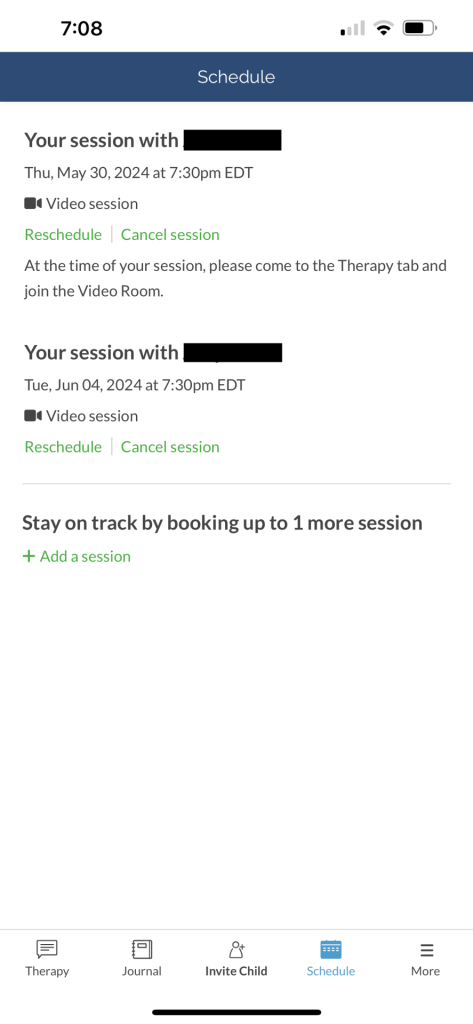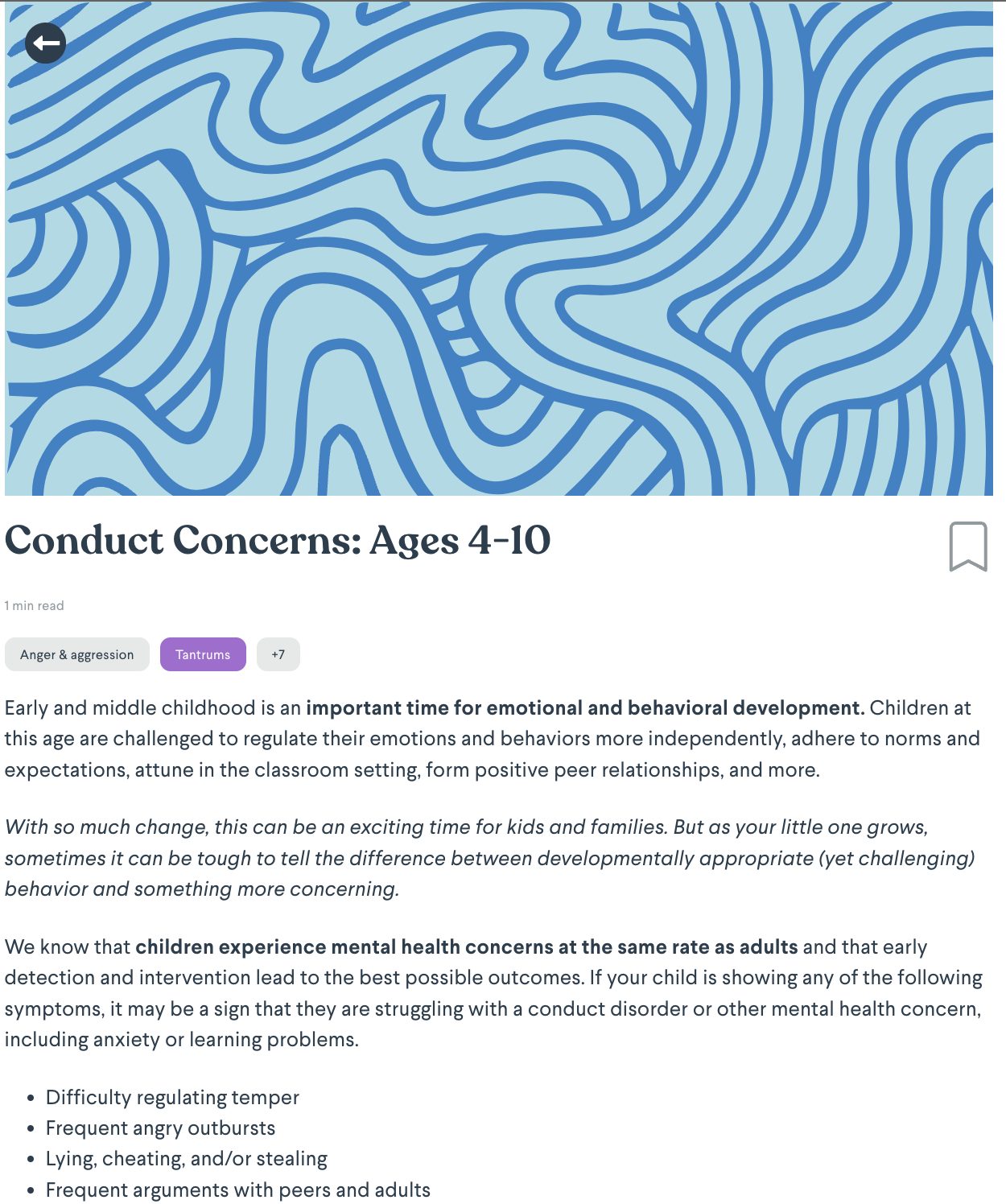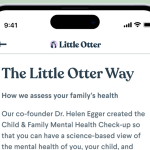Table of Contents
- We spent more than 10,000 hours researching over 70 online therapy platforms, and our testers signed up for the 20 most popular platforms to bring you our top picks.
- Our testers test each platform for at least four weeks, focusing on the sign-up process, therapist selection, therapy session quality, and customer service interactions.
- We survey over 2,000 online therapy users, hold focus group interviews with both users and therapists, and consult over 60 mental health experts.
- We narrowed our search based on providers’ experience with couples and family therapy.
- Learn more about how we tested online family therapy platforms.
Key takeaways
- Without insurance, online family therapy can cost $260–$380 per month or $165–$200 per session. With insurance, copays vary by plan.
- Family therapy can benefit the entire family unit and the individuals and relationships within the family, including couples, parents, and children.
- Online family therapy can be a solution for families with members who live in different locations or who have to juggle multiple busy schedules.
Family relationships can be complex. Family therapy is a type of talk therapy that focuses on improving the relationships between family members. This may include treating any relevant mental and emotional health issues that impact these relationships. Family therapy can involve any number of family members, including couples, parents, children, and extended family. “We do not exist in a vacuum. As social beings, most of our mental health struggles happen within the context of relationships,” says Audrey Schoen, a licensed marriage and family therapist in private practice in Sacramento, California.
Online therapy can offer a way for your family to receive mental health support in a virtual setting. This can be especially beneficial for families with busy schedules, or who live in different locations, since family members can join from anywhere. We tested and researched online family therapy platforms to help you decide which is best for you and your family. Learn more about what we discovered.
The best online family therapy services of 2024
- Regain: Best for relationships
- Teen Counseling: Best for families with teens
- Little Otter: Best for families with young children
Data privacy on mental health platforms
In addition to understanding how your data is collected and used before signing up for a platform, we recommend the following basic steps that we learned from the U.S. Department of Health and Human Services (HSS) and Mozilla Foundation’s *Privacy Not Included project:
- Attend your online therapy appointment in a private location, preferably not on a public Wi-Fi network.
- Use your personal computer when possible.
- Look out for checkboxes during sign-up to opt out of data tracking or medical information disclosure.
- Sign up with your email, not with a social login like Facebook.
- Choose a strong password to create a secure account login.
- When choosing a provider, review each platform’s privacy guidelines to understand whether they share private information.
Regain: Best for relationships
Why Regain is our pick for the best relationship therapy
In our best online therapy review, Regain is our top pick for couples because all Regain therapists have specific expertise and experience in couples counseling. Regain therapists include licensed marriage and family therapists (LMFTs), psychologists, licensed professional counselors (LPCs), licensed mental health counselors (LMHCs), and licensed clinical social workers (LCSWs). In addition to therapy, your subscription comes with a variety of classes that both you and your partner can attend together or separately. There are classes on topics such as wellness, skill building, anxiety and depression, relationships, and substance use that can help couples build on what they learn in their therapy sessions.
“If you’re experiencing challenges with communication, feeling disconnected from your partner, recovering from relationship traumas like infidelity or grief, navigating life transitions, or want to continue building on your strong foundation, relationship therapy may be helpful,” says Ceara Corry, social worker and owner of The Naked Truth in Durham, North Carolina.

Who may like Regain: People seeking online couples counseling with extensive provider availability and ease of scheduling may find Regain a great option.
Who may not like Regain: Regain can be affordable for some people, but if you are looking for more affordable options, consider using virtual therapy that accepts insurance.
It can be beneficial that you and your partner can join live sessions from different locations so you don’t have to be in the same place to conduct therapy, which may be helpful for those utilizing the platform for online divorce counseling or for those who are long distance. One downside to Regain is that you and your partner share the chat room with your therapist, so there’s no way to communicate with your therapist individually without scheduling a live individual session with them for an additional cost.
Regain tester insights
Finding an appointment time that accommodates more than one schedule can be difficult, but our testers had no issue finding an available slot on Regain that fit with their busy schedules. They had their first therapy session within one week of signing up and could easily find evening appointments.
From one of our Regain testers
“Our therapist also told us if we’re struggling to find a time that works for us, we can message her, and she would move around her schedule to accommodate, which was really thoughtful.”
Our testers felt like they didn’t connect well to the first therapist they matched with, but they switched quickly and easily to someone who better suited their needs. “It’s normal to be a little anxious about starting therapy, and it may take more than one session to ‘click’ with a therapist. At the same time, if you notice that you or your partner are having difficulty building an alliance with your therapist, it’s okay to find a new one,” says Corry. Our testers found that their second therapist shared valuable resources and insight that has been useful for their issues. Their therapist is very engaged and frequently sends messages to check in and share additional resources.
What other Regain users say
When you’re seeking relationship counseling, it’s important that your therapist listens to both parties so that everyone feels heard and understood. Our February 2024 survey of 100 Regain users found that many were satisfied with the care they received. About 80 percent of respondents felt that they mostly or fully agreed with the statement that their therapist makes them feel heard and seen.
Read our in-depth Regain review for more information.
Teen Counseling: Best for families with teens
Why Teen Counseling is our pick for best for families with teens
We appreciate that Teen Counseling creates space for parents and caregivers to be involved in the care of their teens by allowing them to communicate with the therapist directly. While caregivers cannot attend live therapy sessions with their teens, they can choose to meet with the therapist separately at any time for a live session of their own. Caregivers and teens also have separate chat rooms with the therapist so that neither can see each other’s messages with the therapist. This can create a safe space for parents and teens to freely communicate with their therapist.
Who may like Teen Counseling: Busy families with limited availability who are seeking online therapy for teens may like Teen Counseling because it allows them to be involved in their teen’s care while still allowing them to have their own individual sessions with a therapist.
Who may not like Teen Counseling: If you want to attend sessions with your teen and their therapist, you are unable to do so through Teen Counseling.
Teen Counseling treats teens ages 13–19 and has over 14,000 therapists. Initially, you’ll receive a therapist match based on your answers to the sign-up questionnaire, but when our testers discovered their therapist’s availability didn’t align with their schedule, they easily switched to someone new. When they requested a switch, they were given a list of more than a dozen therapists to choose from. Therapist profiles include a short bio, availability, and client reviews to help narrow down your provider. “Having that information for each therapist made it easy to pick a new therapist who would work better for us,” says one tester.
Teen Counseling tester insights
Oftentimes, families with teens have busy schedules between school, work, and activities. Our testers appreciate how quickly and easily it is to access therapy through Teen Counseling and how easy it is to fit online therapy into their schedule. One of our testers said they would have liked in-person sessions for their teen, but it just wasn’t realistic with the family’s schedule.
From one of our Teen Counseling testers
“This platform makes it so easy to get started with a therapist (or to switch therapists) without dealing with referrals, driving to the appointment, attending multiple in-person appointments to try to find the right fit, etc. You can find appointments on weekends or evenings, like after 7 p.m., so teens can still fit in sports practices, homework, and other activities.”

What other Teen Counseling users say
In our February 2024 survey of 100 Teen Counseling users, 80 percent of parents completely or somewhat agreed that their teen’s therapy experience met their expectations.
Read our in-depth Teen Counseling review for more information.
Little Otter: Best for families with young kids
Why Little Otter is our pick for best for families with young kids
Although Little Otter is currently limited to 13 states and Washington, DC, it provides comprehensive mental health care for families with children. We appreciate the thorough intake process that asks specific questions about both the adults and children in the family and the inclusive aspects of the questionnaire, such as asking for the pronouns of each family member. After the questionnaire, you receive a detailed report that breaks down the answers you provided in the questionnaire, which includes affirming notes and guidance that may help support you. You can receive a full, in-depth report for a fee of $20.
Who may like Little Otter: Families with children ages 0–14 who are seeking mental health care for the entire family, including partners. Parents may benefit from the coaching.
Who may not like Little Otter: Little Otter is comprehensive, but the cost is higher than that of other online family therapy platforms, and there are no opportunities for financial aid. It also accepts very few insurance plans. If you’re on a budget or Little Otter doesn’t accept your insurance, you may want to consider a more affordable online therapy platform.
Our testers were able to schedule a same-day appointment after signing up. Little Otter claims to offer free informational calls to learn more about whether the platform is right for you, but we were unable to schedule a call on its website since there were no available time slots.
Little Otter tester insights
Our testers appreciate the ease of completing the intake form. It took eight minutes to complete, and even though it was quick, it still asked detailed questions about their family. However, there were some slight hiccups. For instance, our testers realized that they weren’t able to delete or correct some information after submitting it, like the length of time their child had experienced a specific issue. It’s important to provide the right information when receiving any type of health care, so this can be inconvenient.
Families who sign up for Little Otter can access free resources. Our testers appreciate the short articles on children’s mental health and behavioral development and find them useful.
From one of our Little Otter testers
“It’s great that they provide a few resources for you to review. I had access to several short articles covering different children’s age groups and the challenges they may experience, like sadness and crying, worries and anxieties, and anger and aggression. I found these articles useful and think they would benefit people who would like to read more about specific challenges.”

What other Little Otter users say
There are limited reviews of Little Otter on the internet. This is likely because it’s a relatively newer company—having launched in May 2021—and there is limited availability across the United States. The few reviews available on the Apple App Store report positive experiences with the platform and the care team. Reviewers reported being impressed with the short wait times for appointments and the quality of care their families received.
How we test and choose the best online therapy platforms for families
The Handbook Team researched over 70 online therapy and psychiatry platforms, directories, and networks. We signed up for the top 20 platforms to test out for ourselves and narrowed down our research based on which platforms offer online family therapy.






Firsthand testing experience
Testers explore the platforms and attended online therapy sessions for at least four weeks. Our testers are instructed to test the platforms through the lens of a real user, paying attention to how easy or difficult it is to find a therapist they can talk to. Additionally, testers are located throughout the United States, allowing us to gauge the availability of providers in different locations. Testers log their experience in a diary and come together to share their findings when testing concludes.
Online therapy surveys
We received survey responses from over 2,000 online therapy and psychiatry users in varying age groups. These surveys ask current users of the most popular online therapy and online psychiatry platforms to evaluate each service. Their feedback teaches us firsthand how users leverage each platform’s unique features and helps us learn how users feel about important issues such as data privacy.
Focus groups
We host focus groups of practicing online therapists and current online therapy and psychiatry users to understand what each group values on their side of the screen. We ask the therapists about the pros and cons of teletherapy and learn what factors influence online therapy and psychiatry users to choose one platform over another.
Expert interviews and research
For this article, we interviewed three therapists who currently practice couples or family therapy to learn more about the needs of family therapy clients and the overall process of family therapy so we can evaluate the features, therapists, and level of care each platform provides with expert-informed opinions. Additionally, we read eight academic papers and studies that discuss varied topics surrounding family therapy, including the concepts and development, benefits and effects, and types and treatment options.
Our online family therapy testing process
In a mental health emergency
Online therapists may not be the most appropriate resource to help in a mental health crisis. If you or someone you know is a danger to themselves or others around them, it is an emergency, and it cannot wait for an online therapist’s response. Don’t wait. You can find help immediately by:
- Calling 911.
- Visiting your local urgent care or emergency room.
- Calling or texting 988 for the Suicide & Crisis Lifeline.
- Chatting online at 988lifeline.org.
- Calling the Substance Abuse and Mental Health Services Administration (SAMHSA)’s Helpline at 1-800-662-4357 or texting your zip code to 435748.
All the above options will connect you with trained professionals who can provide crisis support. You can find even more resources, including international options, on our helpline directory page.
What is family therapy?
Family therapy is a form of psychotherapy that emphasizes the family as an entire unit, along with the individuals or subgroups that comprise it. People may be interested in family therapy to improve communication, resolve conflict, strengthen relationships, support members with mental health issues, aid with life transitions, and more.
Who should use online family therapy?
Anyone who is struggling with issues in the context of their family can use online family therapy for support. This includes children, teens, and adults. “Family therapy is particularly effective for helping children who are struggling, as the family system has such a huge impact on their well-being,” says Audrey Schoen, LMFT. She also states that couples and adult family members can benefit as well, especially when family dynamics are a frequent source of distress in one’s life.
Who should not use online family therapy?
Family therapy isn’t right for everyone. “When there is a clear pattern of abuse or intimate partner violence, it can be counterproductive for couples to attend therapy together due to the inherent power imbalance. In a situation like this, it may be more beneficial for each partner to focus on individual therapy,” says Ceara Corry, a sex and relationship therapist. Additionally, Corry says discernment counseling may be more helpful if someone is unsure about repairing or continuing their relationship.
Some family members may not be willing to participate in therapy, and there are situations when one person’s mental health may be too disruptive for the entire family. When this happens, people in the family may choose to seek individual therapy instead for the support they need. “In the event that other members of the family or couple aren’t willing to participate in therapy, individuals can work to improve their own communication, self-regulation, and boundaries,” says Schoen.
If you are experiencing violence or abuse
It’s not safe to wait for an online therapy appointment if you are in a violent situation. There is help available now. You can reach out to the National Domestic Violence Hotline by calling 800-799-SAFE, texting START to 88788, or chatting with a volunteer on its website. They will help you create a personalized safety plan to protect you. Or read our article on Domestic Violence and Abuse.
Types of family counseling
There are numerous types of family counseling, and each therapist has a different approach. Some therapists may even combine different treatment types. Here, we discuss the most common types of family therapy.
Structural family therapy
Structural family therapy was developed in the 1970s. It examines the different subgroups that exist within the family and how individual family members interact with one another. In this type of therapy, families who are facing difficulties will be able to recognize the inefficient ways in which they interact with one another and work toward determining their own solutions.
Strategic family therapy
Strategic family therapy has similar elements of structural family therapy, and the two types can be used together. With this type of therapy, families have often identified an issue and have attempted to resolve it without success. The goal of strategic family therapy is to help families try new solutions that haven’t been attempted before.
Brief strategic family therapy is a specific type of strategic family that is short-term. It can last for 12–15 sessions over the course of three months, and it may focus on children or adolescents who are currently experiencing mental health issues, behavioral issues, or substance use.
Systemic family therapy
Systemic family therapy views the family as a system since when one family member is experiencing difficulties, the rest of the family is affected as a result. Research shows this type of therapy has been beneficial for family members who have experienced substance use, eating disorders, and other mental health conditions.
How to choose an online family therapist
When choosing an online family therapist, consider their experience, availability, and cost. Some online therapy platforms allow you to narrow your provider search with filter options that may include therapist availability, therapist specialties and experience, cost, race and ethnicity, gender, and languages spoken. If the platform doesn’t allow you to filter your search results, you may not be matched with someone who fits your criteria. You may be able to request a specific type of therapist through customer service.
Therapist experience
Mental health professionals who provide family therapy may include licensed marriage and family therapists (LMFTs), social workers, counselors, clinicians, or psychologists. While credentials can help you understand the type of education and training your provider has received, it’s also important to focus on their experience. Therapists who provide family therapy should have previous experience providing mental health care for families. If you’re searching for a couples or children’s therapist, make sure they have experience in those areas.
A therapist’s specialty may be more important in some instances than others. For example, if you’re a blended family seeking support with transitions, grief, or family dynamics, you may want to narrow your search to someone who specializes in those topics. Similarly, if one of your family members has a diagnosed mental health condition, you should seek a therapist who has experience with that condition.
For more on finding the right therapist, read our article Finding a Therapist to Help You Heal.
Therapist availability
Your therapist has to be licensed in your state to receive treatment, even if that treatment is virtual. Some online therapy platforms are limited in their state availability. Before signing up, make sure the platform has licensed online family therapists in your state.
Scheduling family therapy often involves coordinating multiple schedules so everyone can meet with the therapist simultaneously. This makes therapist availability a crucial priority when searching for a provider.
Cost
When choosing an online family therapist, consider your budget. The out-of-pocket cost of family therapy from the platforms in this review ranges from $260–$380 per month and $165–$200 per session. Family therapy may not always be affordable, but there are some ways to save.
If the platform accepts your insurance plan, you may be able to lower the cost of care. Some may even accept Medicaid or Medicare. Some platforms also accept HSA and FSA cards. Always be on the lookout for financial aid opportunities and low-cost or free online therapy.
What to expect at an online family therapy appointment
Before an online family therapy appointment, you and your family will schedule an appointment time that works with every person’s schedule. Everyone will log in to the session, either on their own devices or on a shared device (this depends on the platform’s capabilities and your preferences), and begin the session. If you’re feeling anxious or nervous about therapy, know that many people feel this way heading into a session, and your feelings are valid. Your therapist will be there to guide the session along, offer support, and ask questions.
The first online family therapy session allows your therapist to get to know you and your family. They will likely ask questions about your family, including what brings you to therapy. Your therapist may give your family exercises or activities to work on outside of therapy to continue the work. For instance, the therapist of one of our Regain testers suggested that the couple have “jar night” once a week, where they can reach into a jar and pick out different activities they could do to spend more time together.
Our final verdict
Online family therapy can be beneficial for families who find it difficult to make time for their mental health care. The best type of family therapy depends on the needs and preferences of your family and your budget. Online family therapy may not be best for people experiencing abuse or violence or if there are family members who are disruptive or unwilling to commit to the process. Otherwise, online family therapy can provide caregivers, teens, and children with the resources to work through numerous issues and challenges.
Compare the best online family therapy platforms of 2024
| Best for | People seeking online relationship counseling | Families with teens ages 13–19 | Families with children 0–14 years old who are seeking support for kids and caregivers |
| Session types | Live phone, video, and chat | Live phone, video, and chat | Live video |
| Price | $260–$360 per month | $260–$360 per month | $20 kickoff session, $195–$500 for initial assessments, $165–$195 per therapy session, and $250 for psychiatry sessions |
| Accepts insurance? | No | No | Yes |
Frequently asked questions
The best therapy for a family depends on the specific needs of that family. In any case, families should seek care from a therapist who has experience working with families.
Sometimes, individuals in the family may have mental health issues that are too disruptive for a group setting. In these instances, individual therapy would be recommended over family therapy. If there is active violence or substance use, families may be better off reaching out to a crisis hotline or seeking support from a specialized mental health program rather than using online therapy.
Family therapy can be worth it if it helps families work through numerous issues like grief, divorce, and family dynamics. Research shows that family therapy may result in higher family cohesion, increased parental satisfaction and efficacy, and healthier parenting practices.
- Regain Survey. 100 respondents. Conducted using Pollfish. Launched February 2024.
- Teen Counseling Survey. 100 respondents. Conducted using Pollfish. Launched February 2024.
- (2018). Family therapy. American Psychology Association. Link
- (2018). Structural family therapy. American Psychology Association. Link
- Varghese, M., Kirpekar, V., & Loganathan, S. (2020). Family interventions: Basic principles and techniques. Indian Journal of Psychiatry, 62, 192–200. Link
- Jiménez, L., Hidalgo, V., Baena, S., León, A., & Lorence, B. (2019). Effectiveness of structural⁻strategic family therapy in the treatment of adolescents with mental health problems and their families. International Journal of Environmental Research and Public Health, 16(7), 1255. Link













